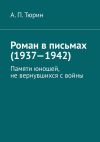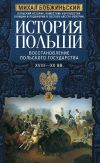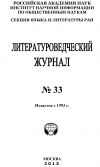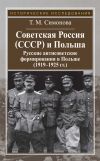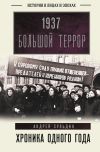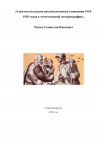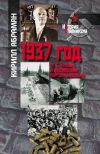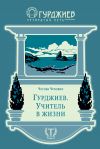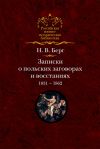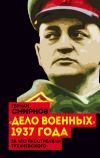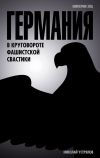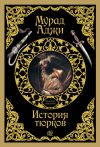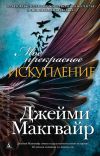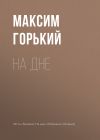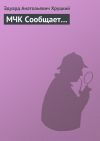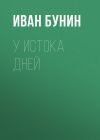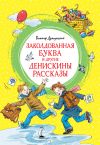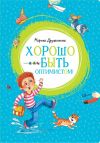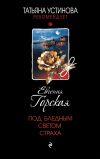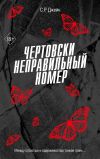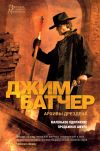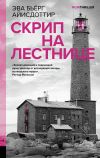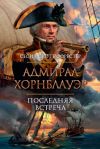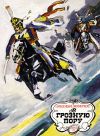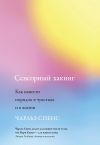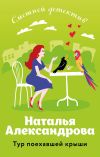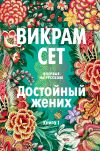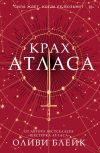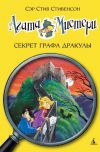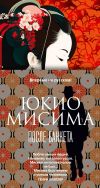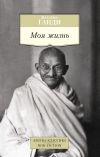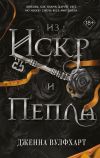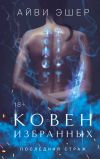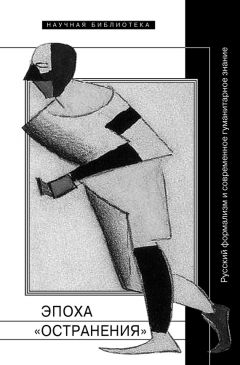
Автор книги: Коллектив авторов
Жанр: История, Наука и Образование
Возрастные ограничения: +18
сообщить о неприемлемом содержимом
Текущая страница: 14 (всего у книги 50 страниц) [доступный отрывок для чтения: 14 страниц]
How russian formalism conquered Serbia
Aleksandar Petrov
The first texts on Russian Formalism, mainly informative in nature, appeared in Serbia and Yugoslavia in the thirties of the preceding century [Захаров, 1932; Ocvirk, 1936, 1938]. However, the first application of the theories of Russian Formalism begins in Serbia as well as in Yugoslavia with the studies on verse by Kiril Feodorovich Taranovsky. In 1937 Taranovsky initiated his research in the field of Slavic comparative metrics and in 1939 he published in Belgrade in Serbian language his work “Methods and Tasks of Contemporary Scholarship on Verse as a Discipline on the Border Between Linguistics and Literary History” [Тарановски, 1939]. That article provided a more detailed theoretical and methodological support for the principles that served as a basis for Taranovsky’s PhD dissertation Russian Disyllabic Rhythms, defended in Belgrade 1941 and published in the Serbian language as a book in Belgrade [Тарановски, 1953].
Already in the opening sentences of his book Taranovsky confronts the ideas of “new theoreticians of verse” and “modern scholarship on verse” with the views of “traditional metrics”:
The view of new theoreticians of verse is that the basis of poetic rhythm is to be found in the fact that in verse, in certain intervals we expect the repetition of some rhythmic signals which may or may not occur. ‹…› The absence of such rhythmic signals or – as termed by traditional metrics – the deviations from the metrical pattern, are not any kind of “poetic license”, or some kind of failure of poetic rhythm as assessed by traditional metrics: on the contrary, herein lies the richness and beauty of poetic rhythm [Там же: 1].
In the first footnote on the second page of the book, as well as on other pages, we find the name of Boris Tomashevsky, one of the main new theoreticians regarding verse, and a quote from his book On Verse [Томашевский, 1929], which probably serves as the main subtext of Taranovsky’s study. Taranovsky also included in his bibliography earlier works by Tomashevsky [Томашевский, 1923], as well as works by O. Brik, V. Zhirmunsky, N. Trubetzkoy the well-known works on verse by Roman Jakobson (dating from the period 1922–1952). Nonetheless, there is no mention of Russian Formalism in Taranovsky’s book, while Opojaz appears only as the publisher of Jakobson’s study [Якобсон, 1923].
Taranovsky’s new views on scholarly research were certainly also influenced by his personal encounters with the representatives of the Prague Linguistic Circle during his studies in Prague in the late thirties. Taranovsky’s encounters with Roman Jakobson in this context were very important.
Another encounter between Taranovsky and Jakobson took place during the Belgrade International Slavic Conference/Congress held in Belgrade on 15–21 September 1955. The papers delivered at the Conference dealt with the development of Slavic studies in the world from 1945 till 1955. All the papers as well as the speeches given at the opening of the conference, and as well as all the conclusions, were published in the book Belgrade International Slavic Conference [Београдски…, 1957]. The chief editor of the proceedings was Kiril Taranovsky. The papers that attracted most attention were those by V. V. Vinogradov on the study of literature and language in the Soviet Union and R. O. Jakobson on Slavic studies in America (both in Russian). Russian Formalism was not even mentioned during the conference.
However, even the presence of Roman Jakobson in Belgrade and his paper on the study of Russian literature in America, and especially everything he said about his latest works was of great significance for those who were interested to know more about the state of modern literary scholarship in the West. Especially in the early fifties, after the distancing from the socialist realism dogma had begun in Serbia and Yugoslavia and the new generation of Serbian modernist writers had begun, despite resistance, publishing their extraordinary literary works. This revival of modern literature in Serbia was followed by a growing interest not only for contemporary Western literature, but also for Russian modern and avant-garde literature of the early decades of the 20th century. At the conference Jakobson also spoke about the study of the Russian avant-garde in the first post-war decade in America.
Jakobson’s visit to Belgrade in the mid-fifties certainly influenced the publication of a book of his studies [Јакобсон, 1966]. The acquaintance with Jakobson’s works from his latest writings had to stimulate, sooner or later, the interest for his participation in Opojaz, for his significant contribution to the Russian formalist school and his relationship with its most outstanding representatives.
After World War Two, but before the appearance of Jakobson’s book, those who wrote about Russian Formalism did so in order to provide basic information. Among them were the Croatian professor from Zagreb A. Flaker [Flaker, 1954] and the Croatian critic B. Donat in Belgrade [Donat, 1964]. Stojan Subotin, professor of Polish literature, was the first who translated Shklovsky’s books Zoo or Letters Not About Love and The Third Factory with a short introduction devoted to Shklovsky both as a prose writer and the leading theoretician of the Russian formalist school [Суботин, 1966]. Some years later professor Nana Bogdanović, from Department of World Literature of Belgrade University, translated Boris Tomashevsky’s Theory of Literature with an introduction dealing with some principles of Russian Formalism [Богдановић, 1972].
The head of the above-mentioned Department of World Literature in Belgrade, Dr. Vojislav Đurić, knew about my interest for Russian Formalism and he invited me to teach a course on this school during the whole autumn semester in 1964. Students of all years as well as their professors attended the lectures. In 1966 I published a fragment from my Master’s thesis, “On the Nature of the Poetic” [Петров, 1966]. This fragment provided a review of the definitions of the poem in verse and prose as well as the term ‘poetic’, from Coleridge and Wordsworth to the representatives of New Criticism A. Tate and I. A. Richards to the views of Russian formalists Yu. Tynyanov, B. Tomashevsky, R. Jakobson and V. Shklovsky.
If in this work on the nature of the poetic dealt with a literary term of the “internal” type, my work from on literary evolution [Petrov, 1967] dealt with another, not less significant term employed by the formalist school, underlining the difference between evolution and genesis (the Marxist thesis), on the one hand, and evolution and tradition (Eliot’s view), on the other.
My book In the Space of Prose was published in Belgrade in 1968. The main part of the book was actually my Master’s thesis titled “The Poetic in Andrić’s Prose”, defended at the University of Belgrade in 1967. In the same book I published a study dealing with Eikhenbaum’s concept of skaz [Петров, 1968a].
The same year the well-known Belgrade journal Knjizevnost [‘Literature’], published in three installments my study “The Poetics of Russian Formalism” [Петров, 1968]. This long study later became the Introduction for the book with the same title that was published in Belgrade in 1970, reviewed for publication by the Zagreb professor A. Flaker. The book includes the most important texts of the Russian formalists as well [Petrov, 1970].
The introductory study first dealt with the state of Russian literary scholarship and criticism prior to the appearance of the formalists (among others A. A. Potebnya, A. N. Veselovsky, A. Bely, V. Bryusov, V. Ivanov), a detailed presentation of the representatives of the formalist school from all three of its periods (according to the periodization proposed in [Erlich, 1955]), their polemics with Marxist critics (P. N. Sakulin, A. Lunacharsky, P. Kogan, V. Polyansky, L. Trotsky), and finally the comparison with the most important linguists and literary theoreticians from Western Europe and America.
A book of selected of works by B. Eikhenbaum, the main opponent of Soviet Marxist critics in the twenties was published two years later. I selected Eikhenbaum’s works for this edition and wrote the introduction titled “Boris Eikhenbaum – Theory and History of Literature” [Петров, 1972]. The introduction details an analysis, more detailed than the previous one, of the polemics conducted between the formalists and the Marxists. I also indicated the changes that appeared after these polemics in the works of the formalists regarding the relationship between literature and literary and extra-literary facts (“series”).
The appearance of these books attracted obvious attention not only in Serbia. Thanks to the Russian professor V. N. Turbin, the Poetics of Russian Formalism reached V. Shklovsky and M. Bakhtin.
When I visited Bakhtin in 1973 he showed me the book, saying he had no difficulty in reading the Introduction written in Serbian. During our conversation, which lasted around five hours, we also discussed Russian Formalism, especially the problem of the author. His opinion was that the Russian formalists did not dedicate enough attention to this issue. Following this conversation, the Bakhtin’s distinction of external and internal author assumed special importance in my own studies, not only regarding prose, but also poetry. Even today, when I am trying to introduce an additional term regarding the author, the meta-author, it is his theses that come to mind. Even prior to my encounter with Bakhtin, Shklovsky suggested that I ask him about his role in the writing of P. N. Medvedev’s book The Formal Method in Literary Scholarship and V. N. Voloshinov’s book Marxism and the Philosophy of Language. Shklovsky said Bakhtin was not willing to discuss this sensitive issue. Shklovsky was convinced that Bakhtin was the real author of both books. During our conversation Bakhtin again circumvented this issue and told me instead about the tragic fate of his friends. However, he did provide an unambiguous answer to my question as to which 20th century Russian theoretician of literature and art he regarded as the most interesting or most significant: Father Pavel Florensky. The most interesting part of our conversation for me was about the concept of chronotope, not only in prose fiction but in poetry as well. Bakhtin was much more interested in fiction but he advised me to try to implement this concept analyzing poetry what I recently started.
The support for the application of the ideas proposed by the Russian formalists in the study of literature, especially Serbian, was not forthcoming from Serbian academic circles except for a few university professors. A substantially greater understanding was expressed by certain literary critics, publishers, and especially certain poets, including the Serbian avant-garde Odysseus Miloš Crnjanski, the one-time surrealist Oskar Davičo, and the two poets most responsible for the change towards new literary modernism in the early fifties of the 20th century: Vasko Popa and Miodrag Pavlović.
In 1968 Vasko Popa invited me to write an introduction for the revised and final edition of his groundbreaking collection of poems Bark (Kora, first edition 1953), noting that he would like me to analyze its poems and cycles in “the formalist spirit” [Петров, 1969]. Soon after his return from exile in 1965 Crnjanski gave me his just published Collected Works in ten volumes, telling me he was acquainted with my partially “formalist” criticism from the time he still lived in London. As a critic I truly endeavored to provide even the criticism published in newspapers and journals with a scholarly-objectivist potential. I felt like a disciple of Russian formalists in my close interest for contemporary literature and my effort to link criticism and scholarship, and therefore I decided to dedicate my dissertation to the study of a living poet – Crnjanski. I defended my doctoral dissertation “The Poetry of Crnjanski in the Evolution of Serbian Poetry” in Zagreb in 1971.
The book that appeared that same year [Петров, 1971], my doctoral dissertation under a slightly changed title (The Poetry of Crnjanski and Serbian Poetry) did not deal only with the constructive function, Crnjanski, to use Tynyanov’s terminology, of the elements of Crnjanski’s poetic works, but also with their literary function, i.e. the mutual ties between his works as well as with works by other authors of the same literary epoch, but also prior and subsequent epochs. This marked the transition from the study of the work as a closed whole towards the interpretation of the work in the dynamic and evolutionary substitution of canonized forms. My book also focused on the author’s poetic/critical attitude towards his own and others’ works as well as the attitude of the critics of various epochs towards Crnjanski ad his works, meaning the reception of literary works.
The poet Miodrag Pavlović, who was also an editor in Prosveta, which had published the Poetics of Russian Formalism, invited me to compile a representative anthology of Russian poetry from the 17th century to the present for Prosveta. My work on the anthology was not simply that of an anthologist, but also that of a theoretician and literary-historical challenge. Working on this project my guidelines were the ideas of Eikhenbaum on the transformation a movement into a drawing, of Eliot on the “ideal order”, of Taranovsky on references and subtext, and contemporary interpretations of intertextuality. Brezhnev personally complained to Tito when he was in Belgrade on a visit in 1976, attempting to prevent the publication of this anthology. However, Tito, after asking for and receiving from me an explanation of what this anthology was about, and the question I posed on the Yugoslav and his personal independence regarding Moscow, consented to the anthology’s publication. Needless to say, Leonid Ilyich was not concerned with the theory the anthology was based on, but with the fact that it included a substantial number of undesirable poets such as, for example, the “oberiuts”, emigrant poets and representatives of the “samizdat” from the Liazonovo group. To Brezhnev’s horror together with Pushkin in the same book!
Towards the end of the sixties and beginning of the seventies, based on formalist theories and those of structuralism as its partial scholarly heir, three scholarly and critical projects were launched: the establishment of the journal Književna istorija [‘Literary History’] in 1968, the Department for the Study of Serbian Literary Periodicals in the Institute for Literature and Art in 1971, and the publication of a book jointly authored by ten younger critics and scholars brought together by their critical attitude towards the current university and academic scholarship on literature. For these new projects, especially the journal, we owe gratitude to the poets Davičo and Popa for providing support for them from the authorities.
The Russian formalist never had his or her own journal. Nonetheless, they dedicated due attention to the problems specific to periodical publications. They were first in introducing the term “journal problems” [Эйхенбаум, 1927: 119]. At the beginning of their activities, they considered journal publications “utterly superior to academic studies and ideas coming from universities” [Eikhenbaum, same] This “journal scholarship” was comprised of works authored mainly by symbolist critics and theoreticians and was “based on certain theoretical principles and formulae supported by new artistic currents accepted by that epoch” [Eikhenbaum, same] Serbian critics of the new orientation had the same attitude towards journal criticism and scholarship of their own times, towards the traditional scholarship of mainstream university professors who mostly engaged in biographical and sociological studies, and towards the predominantly impressionistic current literary criticism.
Even later, when interest for “journal scholarship” waned due to its “subjective and tendentious character” [Эйхенбаум, 1927: 119], the interest of Russian formalists for periodicals continued. Shklovsky was probably the first to indicate that prior to the formalists periodicals were studied with neglect to their literary form. He also claimed that in the twenties a journal could exist only as “a specific literary form”. “A journal must be sustained not only by interest for its specific parts, but also by interest for their mutual relationship” [Шкловский, 1928: 116]. Tynyanov (“Journal, Critic, Reader and Writer”) also stressed that journals and almanacs began to be considered as “literary works” and “literary facts” only in his time [Тынянов, 1977: 225]. He defined criticism and polemics published in journals as a “literary necessity” of journals: “the basic life of a journal consists always of criticism and polemics” [Там же: 461]. Younger Serbian scholars in the early seventies could hardly find more inspiring predecessors for their historical and theoretical approach to literary journals than the Russian formalists. The journal Književna istorija featured an emphatically critical and polemical character during the first years of its publication, especially because it organized round table discussions on significant issues of literary theory and history.
The authors of the book New Critical Orientations [Нова…, 1973], which consisted of two parts – theoretical contributions in the first one, and applied and analytical in the second – had diverse interests and approaches ranging from phenomenology, structuralism, aestheticism to Formalism. One of the authors was Novica Petković. Already in 1970 he had published a translation of Ju. M. Lotman’s Lectures in Structural Poetics and written a Foreword for the book. In 1974 he defended his doctoral dissertation associated with Russian formalist theories on the nature of poetic language and the tasks of literary scholarship. Petković’s dissertation was published in book form in Belgrade 1975 under the title Language in the Literary Work (Variations on the Opojaz Theme) [Петковић, 1975]. Influence of Russian Formalism become definite for historians and theoreticians of literature of coming generations when Petković became professor at the Faculty of Philology in Belgrade.
Finally, here are a few reminiscences of encounters with some of the “heroes” of my article. In the spring of 1973 Roman Jakobson, who lived in the outskirts of Boston, invited me to visit him and thus I met him and his wife Christina Pomorska. They knew about my Poetics of Russian Formalism thanks to professor Taranovsky. I mentioned to Jakobson that Victor Shklovsky would be coming to Belgrade that autumn and that I was designated to accompany him during his whole stay. Jakobson then told me that Shklovsky had written critically about his and Levi Strauss’ analysis of Baudelaire’s “Cats”, criticizing them for overlooking the erotic elements of the poem. Jakobson took one of his books, dedicated it to Shklovsky and asked me to give him the book when he comes to Belgrade. In the dedication, which he showed me, Jakobson reproach Shklovsky because, as he wrote, what really motivating Shklovsky in his criticism was not their neglect of eroticism but “the Judaic fear”. And he added that Shklovsky would detect sexuality in everything, including a teapot.
My hosts invited professor Taranovsky for lunch, but he could meet with me only in the afternoon. The encounter with Jakobson and Pomorska was of course interesting, but the almost eight hour long encounter with Taranovsky turned into a two decades long friendship with him and his wife Vera, long and frequent conversations, correspondence and mutual visits in Arlington and Belgrade.
As for Shklovsky, his stay in Belgrade was extraordinary. He delivered three lectures for which I was the interpreter, I interviewed him for Belgrade television, and during more than a week, while we were touring Belgrade, he spoke to me about his life experiences, Russian avant-garde poets and formalists, very much about Bakhtin, whom he introduced to me that summer in Moscow. At the end of his visit Shklovsky asked me to give to “Romka” a brief letter he had written him and which he read to me. After thanking for the book with the dedication, Shklovsky added that Jakobson was probably unique in failing to recognize the sexual symbolism of a teapot.
I saw Jakobson and Krystyna Pomorska for the last time in Arlington, near Boston, in the home of Taranovsky, in the early spring of 1982. After dinner, Taranovsky and Jakobson suggested that the three of us withdraw to our host’s office, while our wives Vera, Krystyna and Krinka continued their conversation in the dining room. The presumed reason for this was that they didn’t want to impose on the ladies our tiresome conversation on scholarship in the late hours of the evening. The real reason was, of course, our wish to drink vodka without our wives’ worries for our health. We stayed long into the night telling stories, Jakobson and Taranovsky much more than myself. Being very lively and in a very good mood, Jakobson talked about many things, noting at one moment that without such socializing there would have been no Russian Formalism or Prague Linguistic Circle. New scholarly theories resulted from the direct exchange of views, often polemical, but always relaxed and friendly, with vodka playing an important role. Finally, when Jakobson was leaving, knowing that my wife Krinka was a specialist in Hispanic literature, he dedicated and gave her a Spanish edition of his book. Taranovsky commented on Jakobson’s courtesy as a refined apology for having broken our small company into men and women. It turned out that this was the last encounter of two friends from the long past days in Prague. Jakobson passed away that summer.
References
Donat B. Tzv. ruski formalizam // Delo. 1964. Br. 8/9. S. 1233–1256.
Erlich V. Russian Formalism: History – Doctrine. The Hague, 1955.
Flaker A. “Formalna metoda” i njezina sudbina // Pogledi 55. Zagreb, 1955.
Ocvirk А. Teorija primerjalne literarne zgodovine. Ljubljana, 1936.
Ocvirk А. Formalistična šola v literarni zgodovini // Slovenski jezik. 1938. Letnik 1. № 1/4. S. 154–161.
Petrov A. Ruski formalisti o književnoj evoluciji // Vidici. 1967. God. XV. Br. 6.
Petrov A. (ur.). Poetika ruskog formalizma. Beograd, 1970.
Београдски међународни славистички састанак (15–21. IX 1955). Београд, 1957.
Богдановић Н. Предговор // Томашевски Б. Теорија књижевности. Поетика. Београд, 1972.
Захаров Е. Формалистички правац у руској књижевности // Мисао. 1932. св. 7/8.
Јакобсон Р. Лингвистика и поетика. Београд, 1966.
Нова критичка опредељења. Београд, 1973.
Петковић Н. Језик у књижевном делу (Варијације на теме Опојаза). Београд, 1975.
Петров А. О природи поетског // Књижевне новине. 1966. Бр. 279.
Петров А. У простору прозе. Београд, 1968(a).
Петров А. Поетика руског формализма // Књижевност. 1968(b). Бр. 1–3.
Петров А. Песнички свет «Коре» // Попа В. Кора. Београд, 1969. С. 7–46.
Петров А. Поезија Црњанског и српско песништво. Београд, 1971.
Петров А. Ејхебаум – историја и теорија књижевности // Ејхенбаум Б. Књижевност. Београд, 1972.
Суботин С. О Виктору Шкловском // Шкловски В. Zoo или писма не о љубави; Трећа фабрика. Београд, 1966. С. 7–17.
Тарановски К. Методе и задаци савремене науке о стиху као дисциплине на граници лингвистике и историје књижевности // III Међународни конгрес слависта. Издања Извршног одбора, 4. Београд, 1939. С. 108–132.
Тарановски К. Руски дводелни ритмови, I–II. Београд, 1953.
Томашевский Б. Русское стихосложение. Метрика. Пг., 1923.
Томашевский Б. О стихе. Л., 1929.
Тынянов Ю. Н. Поэтика. История литературы. Кино. М., 1977.
Шкловский В. Журнал как литературная форма // Шкловский В. Гамбургский счет. Л., 1928. С. 112–117.
Эйхенбаум Б. Теория «формального метода» // Эйхенбаум Б. Литература. Л., 1927. С. 116–148.
Якобсон Р. О чешском стихе преимущественно в сопоставлении с русским. [Берлин], 1923.
Внимание! Это не конец книги.
Если начало книги вам понравилось, то полную версию можно приобрести у нашего партнёра - распространителя легального контента. Поддержите автора!Правообладателям!
Данное произведение размещено по согласованию с ООО "ЛитРес" (20% исходного текста). Если размещение книги нарушает чьи-либо права, то сообщите об этом.Читателям!
Оплатили, но не знаете что делать дальше?